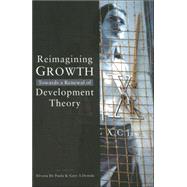
| Abbreviations | ix | ||||
| Acknowledgements | xi | ||||
| Part i Framing the Problem | 1 | (82) | |||
|
3 | (24) | |||
|
|||||
|
3 | (8) | |||
|
11 | (9) | |||
|
20 | (1) | |||
|
21 | (6) | |||
|
27 | (25) | |||
|
|||||
|
28 | (2) | |||
|
30 | (1) | |||
|
31 | (2) | |||
|
33 | (2) | |||
|
35 | (3) | |||
|
38 | (2) | |||
|
40 | (3) | |||
|
43 | (2) | |||
|
45 | (7) | |||
|
52 | (31) | |||
|
|||||
|
52 | (5) | |||
|
57 | (4) | |||
|
61 | (7) | |||
|
68 | (9) | |||
|
77 | (6) | |||
| Part ii Rethinking the Role of Institutions and Macrostructures in Development | 83 | (86) | |||
|
85 | (14) | |||
|
|||||
|
85 | (4) | |||
|
89 | (2) | |||
|
91 | (3) | |||
|
94 | (5) | |||
|
99 | (42) | |||
|
|||||
|
99 | (3) | |||
|
102 | (7) | |||
|
109 | (11) | |||
|
120 | (9) | |||
|
129 | (12) | |||
|
141 | (28) | |||
|
|||||
|
141 | (1) | |||
|
142 | (2) | |||
|
144 | (3) | |||
|
147 | (4) | |||
|
151 | (3) | |||
|
154 | (3) | |||
|
157 | (6) | |||
|
163 | (6) | |||
| Part iii Rethinking the Microstructure of Development: Individuals and Communities in Global and Local Spaces | 169 | (90) | |||
|
171 | (27) | |||
|
|||||
|
171 | (2) | |||
|
173 | (2) | |||
|
175 | (1) | |||
|
176 | (4) | |||
|
180 | (4) | |||
|
184 | (2) | |||
|
186 | (4) | |||
|
190 | (2) | |||
|
192 | (1) | |||
|
193 | (5) | |||
|
198 | (32) | |||
|
|||||
|
198 | (2) | |||
|
200 | (5) | |||
|
205 | (10) | |||
|
215 | (6) | |||
|
221 | (9) | |||
|
230 | (29) | |||
|
|||||
|
230 | (1) | |||
|
231 | (3) | |||
|
234 | (6) | |||
|
240 | (6) | |||
|
246 | (4) | |||
|
250 | (9) | |||
| Part iv Rethinking the Participatory Process: Local and Global Connections | 259 | (39) | |||
|
261 | (37) | |||
|
|||||
|
262 | (5) | |||
|
267 | (5) | |||
|
272 | (11) | |||
|
283 | (8) | |||
|
291 | (7) | |||
| Notes on the Contributors | 298 | (4) | |||
| Index | 302 |
The New copy of this book will include any supplemental materials advertised. Please check the title of the book to determine if it should include any access cards, study guides, lab manuals, CDs, etc.
The Used, Rental and eBook copies of this book are not guaranteed to include any supplemental materials. Typically, only the book itself is included. This is true even if the title states it includes any access cards, study guides, lab manuals, CDs, etc.